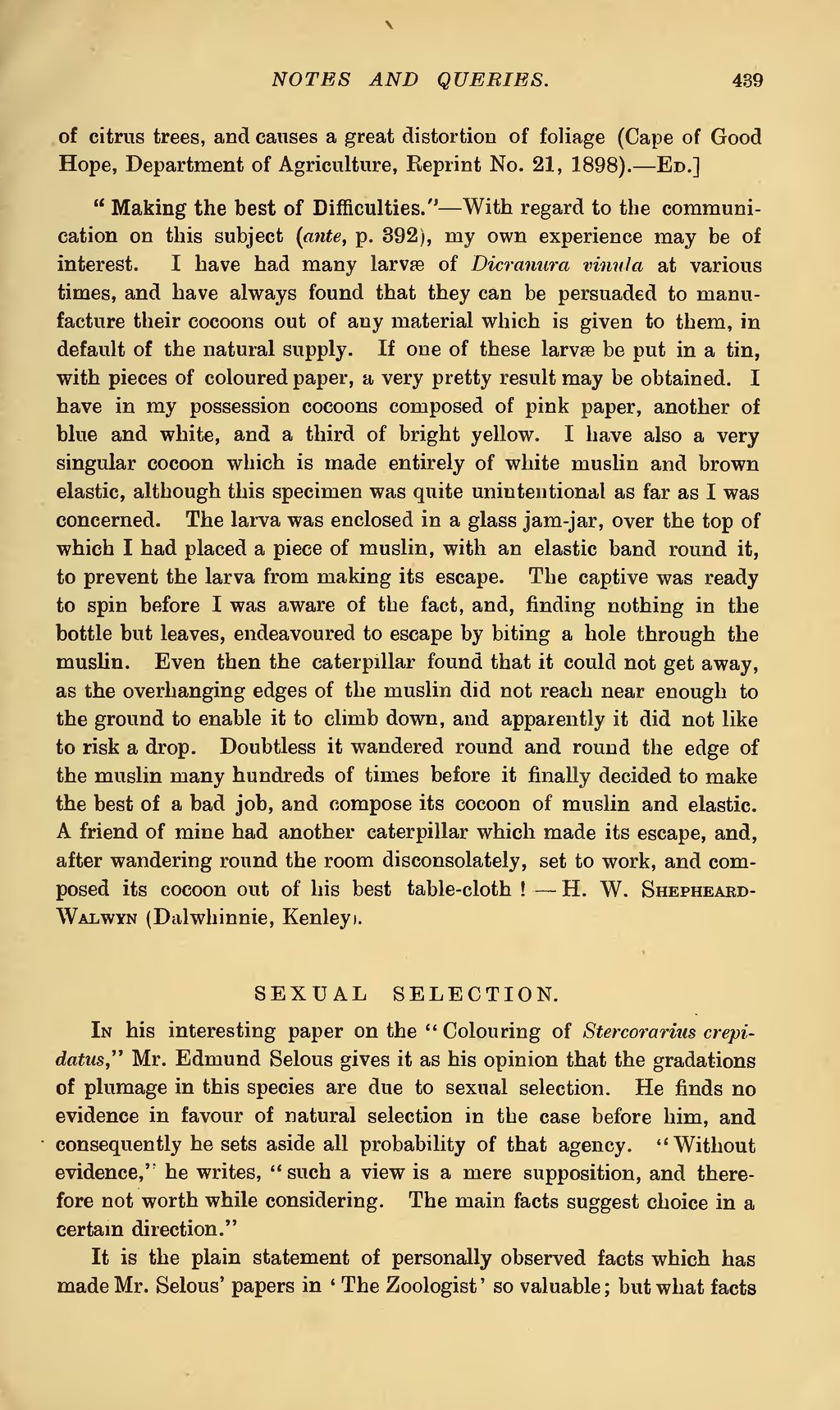of citrus trees, and causes a great distortion of foliage (Cape of Good Hope, Department of Agriculture, Reprint No. 21, 1898).—Ed.]
"Making the best of Difficulties."—With regard to the communication on this subject (ante, p. 392), my own experience may be of interest. I have had many larvæ of Dicranura vinula at various times, and have always found that they can be persuaded to manufacture their cocoons out of any material which is given to them, in default of the natural supply. If one of these larvæ be put in a tin, with pieces of coloured paper, a very pretty result may be obtained. I have in my possession cocoons composed of pink paper, another of blue and white, and a third of bright yellow. I have also a very singular cocoon which is made entirely of white muslin and brown elastic, although this specimen was quite unintentional as far as I was concerned. The larva was enclosed in a glass jam-jar, over the top of which I had placed a piece of muslin, with an elastic band round it, to prevent the larva from making its escape. The captive was ready to spin before I was aware of the fact, and, finding nothing in the bottle but leaves, endeavoured to escape by biting a hole through the muslin. Even then the caterpillar found that it could not get away, as the overhanging edges of the muslin did not reach near enough to the ground to enable it to climb down, and apparently it did not like to risk a drop. Doubtless it wandered round and round the edge of the muslin many hundreds of times before it finally decided to make the best of a bad job, and compose its cocoon of muslin and elastic. A friend of mine had another caterpillar which made its escape, and, after wandering round the room disconsolately, set to work, and composed its cocoon out of his best table-cloth!—H.W. Shepheard-Walwyn (Dalwhinnie, Kenley).
SEXUAL SELECTION.
In his interesting paper on the "Colouring of Stercorarius crepidatus," Mr. Edmund Selous gives it as his opinion that the gradations of plumage in this species are due to sexual selection. He finds no evidence in favour of natural selection in the case before him, and consequently he sets aside all probability of that agency. "Without evidence," he writes, "such a view is a mere supposition, and therefore not worth while considering. The main facts suggest choice in a certain direction."
It is the plain statement of personally observed facts which has made Mr. Selous' papers in 'The Zoologist' so valuable; but what facts

